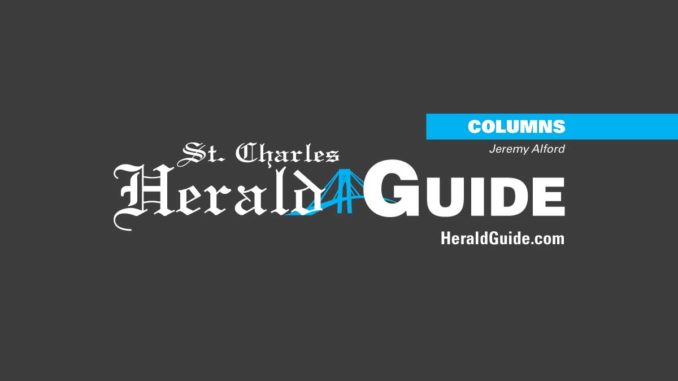
With the governor opposed to any net tax increases this session, practically every corner of state government is turning to fees as an avenue to generate additional dollars for the upcoming fiscal year.
The budget for the 2015-16 year has a shortfall of $1.6 billion and spending cuts have become the norm, thus necessitating the push for fees this spring. The session convenes April 13.
Agriculture Commissioner Mike Strain, whose department is facing a $5.8 million reduction, said that he will ask lawmakers for the authority to pursue $1.1 million in fee increases.
If the House and Senate agree, Strain will then have to take his appeal to various boards and commissions, which will in turn have to vote to raise the caps on the existing fees they oversee.
“We’re going to be looking at all different kinds of fees,” Strain said. “We’re working with industry right now and they’ve been receptive to this. We’re also going to argue to the Legislature that some of our funds need to be restored.” Secretary of State Tom Schedler won’t be asking for new fee revenue, but he is seeking legislation that would allow his office to pool existing revenue from election-related fees into a single fund to bankroll voter technology upgrades.
That includes replacing Louisiana’s aging voting machines. “The process of replacing the large machines we use now with something similar to a television screen or tablet will take several years,” Schedler added.
Additionally, there are at least eight executive departments and agencies proposing $74 million worth of new fees and fee increases this session to close their budget gaps, according to the governor’s budget presentation last month.
If those go into effect, businesses and individuals will be asked to pay more for tax installment agreements, vehicle title certificates, medical window tints, storage facility licenses, ferry toll fares, billboard permits, environmental document processing, pipeline fees, entertainment incentive fees and penalties on late tax payments, among many other government-regulated services and functions.
Fees are also at the heart of the debate over providing funding to higher education.
Rep. Franklin Foil, R-Baton Rouge, has introduced House Bill 62, a constitutional amendment that would allow colleges and universities to impose new fees or increase them without seeking approval by the Legislature.
He said the effort is about giving higher education institutions “more stability and control over their budgets.”
The idea may have some momentum. Gov. Bobby Jindal originally proposed having students and parents pay higher fees out of pocket, to be recouped later through a tax credit bankrolled by hiking the cigarette tax.
But the administration proposal has since been refined. The working plan now is to have universities and colleges apply for tax credits on a per student basis using the proceeds from a cigarette tax or another revenue source. Lack of votes delay capital outlay money
There are 236 capital outlay construction projects that were in line for funding in July, but will have to wait until September possibly, because roughly half of the House failed to fill out and return the latest Interim Emergency Board mail ballots.
Approximately $272 million in funding will now be delayed for these projects.
Only 63 of the 300 projects on the mail ballot were approved by lawmakers, representing the largest ballot in recent memory. It’s also the first time anyone in Division of Administration can remember so many capital outlay changes failing due to a lack of votes.
The vote counts from the House, which has 105 members, ranged between 53 and 57. The Senate, by comparison, voted to approve all 300 projects on the mail ballot that was sent out recently.
It doesn’t appear to be intentional, but rather a lack of participation due to a number of factors described by House members as “trying to catch up after the Mardi Gras holiday,” the “budget talks took all my attention” and the “sheer size of the ballot.”
“I can’t believe they did this,” said a senator in regard to the House vote. “I had reps from my own district not voting for projects that we worked on together.”
The capital outlay bill is divided into and numbered, one through five, by priorities, and the administration wanted to move the projects from priority two to priority five. New projects are placed in priority two, ongoing projects are in priority one and the trailing money for future projects is in priority five.
Projects impacted include levee work and river dredging, as well as items for the World War II Museum, among many others.
The Interim Emergency Board will not reconvene, nor will a new mail ballot be sent to lawmakers. Rather, the administration believes it can make the necessary changes during session.
The official goal of the ballot was to prioritize projects in order to move them to priority one. But other sources suggest the administration was stretched thin on promises it made to lawmakers last session on capital outlay projects and the changes were needed to not only show those promised projects were moving, but to also free up space in priority two for more sweeteners to be offered to lawmakers in the upcoming session.
Asked for comment, Division of Administration spokesperson Gregory Dupuis said, “The priority system helps to ensure that projects can get the funding they need as their projects enter new phases of development and construction.”
Legislative fundraising underway
Lawmakers are prohibited from raising money while they’re in session, even if it is a re-election year.
That means the period right before session begins keeps lobbyists and others pretty busy attending parties and events — and writing checks.
Last month, a state representative had three events hosted for himself in a single week. “I think we’ve seen enough of each other for a while,” said one donor.
During the first week of the month, there were at least seven fundraising events for six lawmakers, maybe a few more. The schedules seem to be filling up in the middle of the week, Tuesday through Thursday.
“I kind of expected more people to be having fundraisers right now, though,” said a lobbyist. “I guess that means they’ll come calling after session.”
A few lawmakers who have yet to hold an event said they’re avoiding pressing the flesh until they know for sure whether they’ll be opposed in the fall.
They Said It
“(We’ve) used every plug, every bell and whistle, and turned over the couches and dug for money between the cushions to balance the budget but there’s none left.”
— Sen. Blade Morrish, in The Lake Charles American Press


Be the first to comment